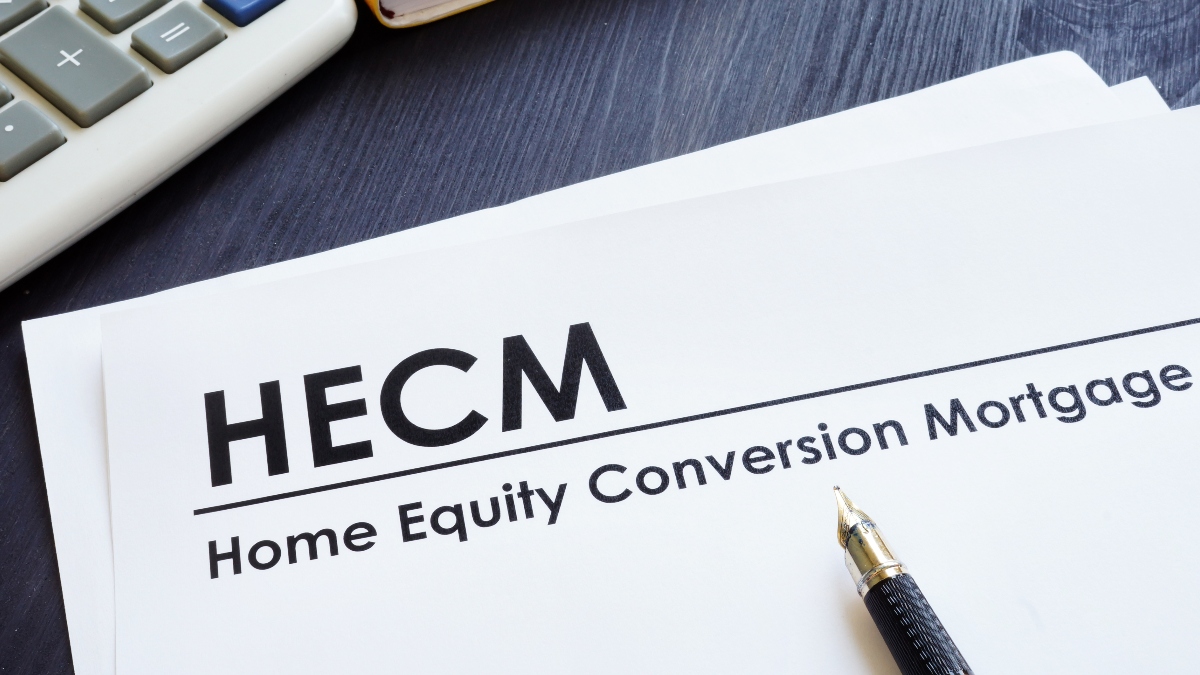With rising costs and high interest rates these days, home ownership can be tough for many people. This can be especially true for seniors, who may be on a fixed budget. Thankfully, there is an option for older adults to help improve their financial situation: a reverse mortgage. Not sure what this home loan entails? Find out more about the requirements of reverse mortgages, who can benefit from the loan and what to consider when deciding if it’s the right fit for you.
What is a reverse mortgage & how does it work?
Also known as a Home Equity Conversion Mortgage (HECM), this is a special type of home loan designed for homeowners who are 62 and older. Unlike traditional loans, borrowers don’t make monthly payments with a HECM, according to ConsumerFinance.gov. Instead, the loan gets repaid once the borrower no longer lives at home.
It’s called a reverse mortgage because the amount owed goes up—not down—over time since interest and fees raise the loan balance. Even though mortgage payments are not paid monthly, property taxes and homeowners’ insurance are still required.
Though it may sound like free money to live in a home, the loan does need to be paid back eventually. This can be done by the homeowners or the heirs, and it’s usually done when you sell the home.
Who should get a reverse mortgage?
Though the mortgages are designed for those above the age of 62, not everyone will benefit from one of these options.
“Retirees who are committed to living in their home for at least the next few years are the best candidates for reverse mortgages,” says Mitch Brennan, president at Nationwide Mortgage Bankers. “It should be your primary residence, and it’s important to continue staying on top of all your other home payments: property taxes, insurance and just making sure your home stays in good condition.”
But this non-traditional mortgage can also potentially help those who want to be able to stay in their current home despite some financial setbacks.
“I’ve seen reverse mortgages be the only way that a homeowner was able to keep their home, and receive income from their home, which saved them from having to find a new home,” adds Patricia Taffs, mortgage loan officer at Wasatch Peaks Credit Union. “For that reason alone, I think a reverse mortgage is a great option for anyone to explore when budgeting issues are a primary concern in retirement.”
The funds from the reverse mortgage can help to pay off an existing mortgage and eliminate the monthly payments. This frees up money so you only have to focus on taxes and insurance.
What to keep in mind about choosing a reverse mortgage
Considering applying for the unique mortgage? The experts say it’s important to know about the advantages and drawbacks that come along with this type of loan.
The pros of getting a reverse mortgage
As mentioned above, if you use this type of loan to pay off the current loan on your property, it can put you in a better financial standing.
“Reverse mortgages are one of the best financing tools on the planet, in my opinion,” shares Brennan. “The best part about them is that you’re converting a portion of your home’s value into tax-free dollars without giving up ownership or needing to make monthly mortgage or interest payments.”
Plus, because you’re no longer making those monthly payments, it may even help you bring in money.
“Depending on the equity in the property, the loan could also provide additional monthly income to the homeowner,” adds Taffs.
The cons of an HECM loan
While a reverse mortgage can be appealing, experts do caution that people should be aware of the extra requirements that accompany the loan. These include:
- High up-front fees, including closing costs, service fees and an origination fee.
- Additional education is required as part of the loan process.
- You must remain the primary resident to keep the loan
- You cannot owe any federal debt
- Your home must be in good shape
Because of all of these factors, it’s important to consider if you actually need a reverse mortgage. Otherwise, it may be more trouble than it’s worth.
“They can be expensive to do, and if there isn’t necessarily a need for consistent additional monthly income, or the elimination of the current mortgage entirely, then there may be other options to secure a source of ‘emergency’ funds for the home, like a HELOC,” advises Taffs.
How to apply for a reverse mortgage

As long as you are at least 62 years old and meet all of the requirements for a HECM loan, you can begin comparing lenders. Doing some research can ensure you get the best deal possible.
“The requirements and processing of reverse mortgages are the same, no matter which lender you choose, but the interest rates can be different from one lender to the next,” assures Taffs.
You’ll need to meet with a Housing and Urban Development (HUD)-approved mortgage counselor before moving forward, but then it’s up to you to submit the application to your chosen lender.
If approved, the process resembles that of any other mortgage loan with the necessary appraisal and underwriting. Once the loan closes, you can reap the benefits of your new reverse mortgage!






